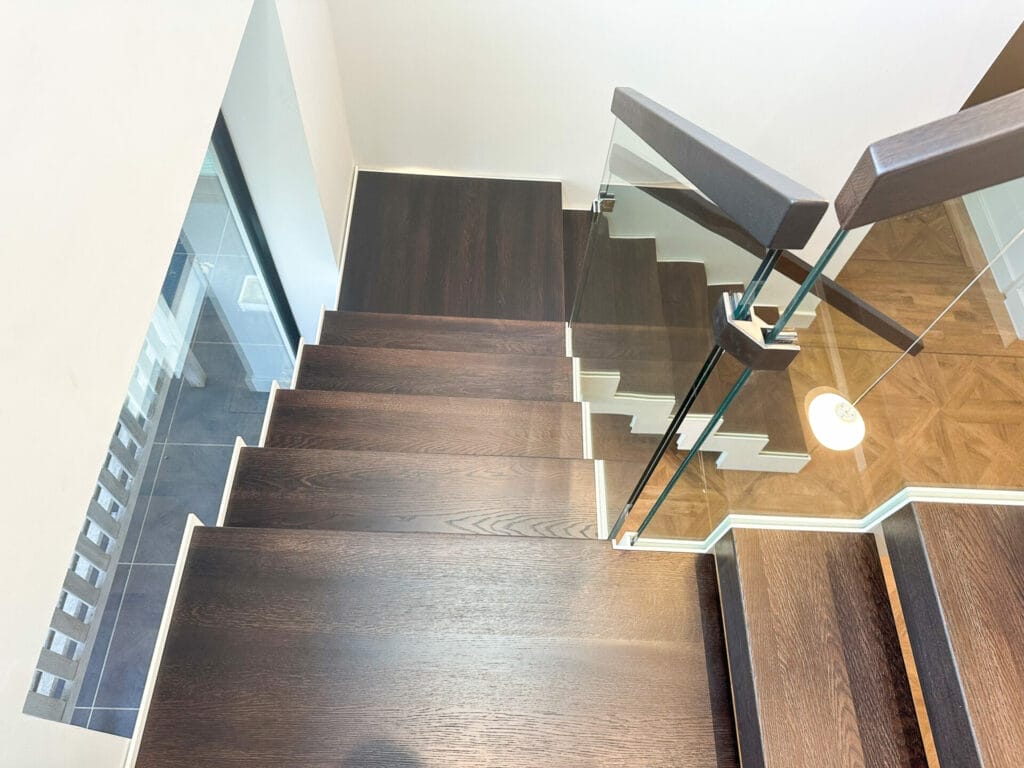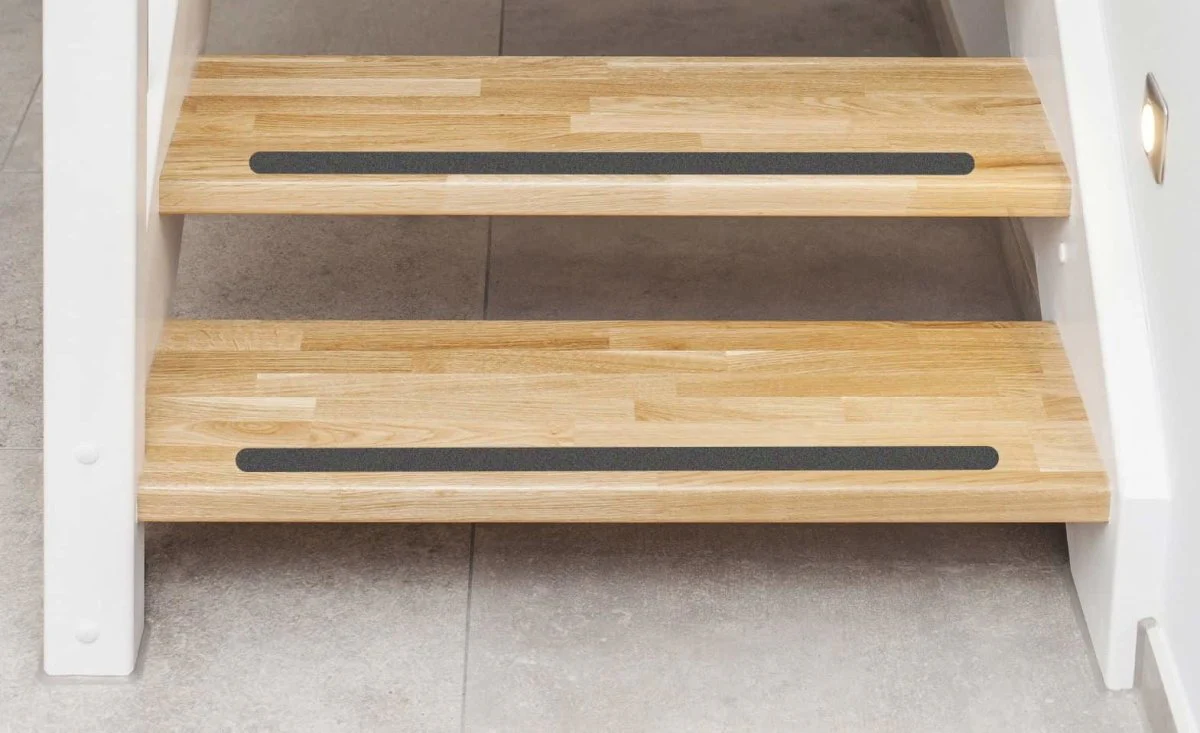When it comes to building or upgrading a staircase, the type of wood you choose makes a big difference. It’s not just about how the stairs look, but how well they hold up over time. A good staircase should feel solid, fit the style of your home, and last for years without much maintenance. That all starts with picking the right kind of wood.
Some woods are known for their strength, others for their beauty. The best option depends on where your staircase is located, how much foot traffic it sees, and the kind of vibe you’re going for. Whether you’re aiming for timeless and traditional or sleek and modern, there’s a wood species that fits your needs.

Why the Type of Wood Matters
The staircase is one of the most used and visible features in any home. It’s not just functional—it’s a design statement. Choosing the right wood ensures your stairs can handle daily wear while enhancing your home’s overall aesthetic.
Strength is crucial for both safety and longevity. Harder woods withstand pressure and movement over time, maintaining their integrity for years. But style plays an equally important role. The colour, grain, and texture of the wood can either make your staircase a focal point or help it blend seamlessly into your interior.
When it comes to staircases, the type of wood you choose makes a big difference. It’s not just about appearance, but also durability and performance. A high-quality staircase should feel secure underfoot, complement your home’s style, and last for generations with minimal upkeep. That all starts with selecting the right kind of wood.
Some hardwoods are known for their resilience, others for their natural beauty. The ideal choice depends on where your staircase is located, how much foot traffic it gets, and the kind of look and feel you’re aiming for. Whether you want something timeless and traditional or sleek and contemporary, there’s a hardwood species to suit your needs—and with a wide range of stain options, your design possibilities are endless.
Top Hardwoods for Staircases
Oak
Oak is perhaps the most popular hardwood for staircases—and for good reason. It’s exceptionally strong, durable, and widely available, making it a practical yet stylish choice for a wide range of interiors.
There are two main types of oak used in staircases: red oak and white oak. Red oak has a warm, golden tone with a classic grain pattern that suits both traditional and transitional designs. It stains well, allowing you to customise the finish to match your interior, from natural tones to deeper, richer shades.
White oak, on the other hand, is even tougher and offers a more modern, slightly cooler aesthetic. It’s also more resistant to moisture, making it ideal for staircases near entrances or in areas where durability is key. Like red oak, white oak can be stained in various colours, giving you great flexibility in design.
Ash
Ash is another excellent choice for staircases, especially if you’re looking for a wood that combines strength with lightness. Ash is known for its pale colour and distinctive, straight grain, which gives it a clean, elegant look that works well in both modern and classic settings.
One of ash’s greatest strengths is its flexibility in staining. Because of its light natural hue, it can be stained to mimic darker woods like walnut or left in a lighter finish for a fresh, airy feel. It’s also very strong and durable, capable of handling high foot traffic while maintaining its appearance over time.
Beech
Beech is a fine-grained hardwood with a smooth, even texture, making it perfect for sleek, contemporary staircase designs. Naturally light in colour, beech offers a subtle, understated beauty that can be transformed through staining to suit any interior style.
Its excellent strength and shock resistance make it a reliable choice for stair treads, especially in homes where both form and function are important. Whether you prefer a light, natural finish or a bold, dark stain, beech can be adapted to meet your design goals.
Walnut
Walnut stands out for its rich, dark tones and luxurious appearance. It has a smooth grain and a depth of colour that ranges from light brown to deep chocolate, giving staircases a sophisticated, high-end feel.
While walnut is slightly softer than oak or ash, it is still more than durable enough for residential use. It’s perfect for homeowners looking to make a statement, as its natural beauty requires little enhancement. However, walnut can also be stained to adjust its tone, making it versatile as well as elegant.
Custom Staining Options
One of the advantages of using high-quality hardwoods like beech, oak, ash, and walnut is their ability to take stain beautifully. Whether you want a natural finish that highlights the wood’s inherent grain and colour, or a custom-stained tone to match your décor, there are countless options available. From light, airy hues to deep, dramatic shades, staining allows you to personalise your staircase to fit seamlessly with your home’s style.
Matching Wood to Your Stair Style
The style of your home heavily influences which wood will look and feel right for your staircase. If you prefer a classic or colonial aesthetic, oak or walnut often provide the warmth and elegance you’re looking for. For a more modern or minimalist interior, ash or beech offer a clean, subtle look that complements contemporary design.
Many homeowners also mix and match wood types or finishes. For example, hardwood treads combined with painted risers can create a visually striking and cost-effective staircase. With the right combination, you can achieve both durability and aesthetic appeal without compromise.
Maintenance and Longevity
Hardwoods like oak, ash, beech, and walnut are known for their durability and low maintenance. Once properly sealed, they resist dents, scratches, and everyday wear. Regular care—such as dusting and occasional refinishing—will keep them looking their best for years.
The finish you choose, whether oil, stain, or polyurethane, also affects the wood’s longevity and appearance. Some finishes enhance the natural grain, while others provide a more uniform colour. Over time, woods like walnut may deepen in tone, adding even more character to your staircase.
Conclusion
Choosing the right hardwood for your staircase isn’t just a detail—it’s a decision that will shape your home’s look and feel for years to come. Whether you’re drawn to the timeless appeal of oak, the light elegance of ash, the clean modernity of beech, or the rich sophistication of walnut, each offers strength, beauty, and customisation to suit your space.
At Paradigm Stairs, we specialise in crafting bespoke staircases tailored to your exact needs. Our expert team will guide you through every step, from selecting the perfect wood and stain to delivering a staircase that’s as durable as it is beautiful. Let us help you bring your vision to life with a staircase that’s truly one of a kind.



